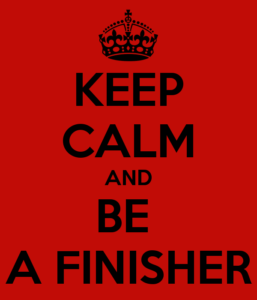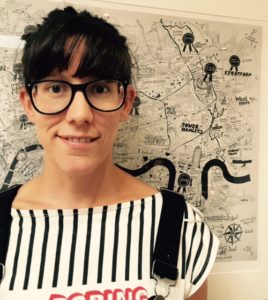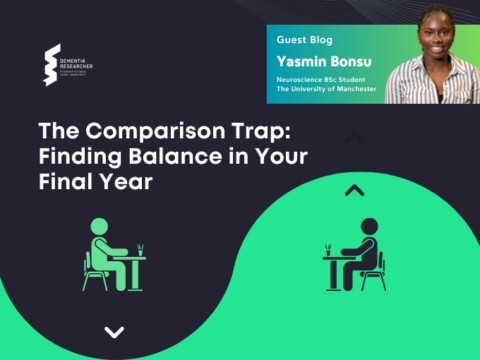#apologising

I have often found myself applying for jobs with an apology as my opening line. I seem to start by highlighting the areas where I am not sure if I really fit the criteria. Where I have the least experience. I assume they want to know how much of a burden I might be. By the time I have gotten around to the good stuff I have also emphasised that I would do my best and try really hard, even though I am not sure I have done half of this stuff before. Over the years I have realised that although this might be how I feel inside (the honest truth) this is not what an employer wishes to hear. I have been an employer and conducted interviews. When I think about those interviews I can recall the way my heart sank each time an individual started answering me in this way. I didn’t want to consider the time I would need to spend working on getting them up to speed- I wanted to hear that they could be an asset to the team.
Having said that I know I am not the only speech and language therapist who presents themselves in this way at interviews. I have been asked to look at job applications and practice interview questions with a few friends. Recently I was describing to one of these friends that perhaps she should consider the whole process a little differently- I asked her if she were to employ a builder who she would consider:
1) The builder who told her he wasn’t sure if he could build it, might need to get some outside assistance but will try his best
OR
2) The builder who says it’ll be no problem and he’ll get it done
OR (beware)
3) The builder who knows best- who tells you your ideas are all wrong and he has a better idea.
My friend thought this was ever so useful. Consequently, she sat down and completely re-wrote her covering letter. She stated that she had never really thought of it all this way- she hadn’t considered her employment as an investment. Yet although promoting oneself as the right fit for the job, with confidence, is valuable, it is also important to listen, take feedback and advice to ensure you can be the best fit.
I have been endeavouring to fit this analogy to my clinical academic self. And at a recent grant funding workshop (as of course I do need to think about my future beyond my PhD now argh). At this workshop, I found myself pleasantly surprised by the approach being described for grant writing, it really isn’t so different. It is called The 10 key sentences. The idea is that these sentences should start with an introduction that explains what the research will achieve, why it is important and how you’re going to do this in 10 sentences, without using references. Once this key paragraph is written you can then break it down and address each area in turn, with the relevant evidence. I interpreted this idea as demonstrating what your selling, why and how. By presenting the solution first, rather than the problem you are a little more like builder no. 2. You are demonstrating your value as an investment. By presenting the why (the problem) first, which is what I am tempted to do, you’re a little more like builder no. 1. But if you are too concrete and don’t accept help, advice and ideas your more like builder no. 3.
#beafinisher
 I have worked on numerous multidisciplinary teams within health care settings. One of the hardest things to do in these teams is communicate with one another and yet one of the easiest things to do is communicate with one another. Yet without communication, nothing gets done. The same seems to apply to academia.
I have worked on numerous multidisciplinary teams within health care settings. One of the hardest things to do in these teams is communicate with one another and yet one of the easiest things to do is communicate with one another. Yet without communication, nothing gets done. The same seems to apply to academia.
My favourite analogy here is the marathon. You cannot just get up off that couch and run a marathon. You need to invest in a whole bunch of training, and stick with it. You need to work on strength, distance and nutrition. You can’t omit sections of the training plan and expect to finish. Building relationships, trust and respect with colleagues requires an investment. This means working with the medical and nursing team (this is the distance training where by you build their understanding and respect) but you must also work with the ward clerk, the kitchen staff and the health care assistants. Sharing anecdotes about my family life, asking them some questions about their families and remembering they are interesting and equal (this is the strength training- the ward clerk, kitchen staff and health care assistants are the foundation of the ward, just like strength is the foundation for distance). Thus, I found most of my diet recommendations for swallowing were solved – the team knew who I was and were interested in what I did. In the same way that a well thought out training programme can prepare you for a successful marathon race.
Having said all that applying the principles of marathon training to a PhD requires a bit more discipline. It feels more like an ultra-marathon if I am completely honest. Or perhaps the clinical work was the half marathon and the PhD is the full marathon, and I haven’t even gotten to post-doctorate level yet! As a PhD student, you need to stick to that training plan without getting distracted and deviating (no going for a shorter run, or doing only six or the ten sprints you were aiming for). There are fewer serotonin highs on a PhD. As a clinician, I was often rewarded by lovely patients, kind colleagues and clinical successes. As a PhD student, these rewards are less immediate. One manuscript takes a lot longer to write than you think it will. But being a finisher is a valuable trait. No walking to the finish line- I am running (jogging slowly) all the way. No one else is going to write my manuscripts or thesis chapters for me. I need to set myself a deadline and finish. It is fairly satisfying. No one else can be blamed for the delays and no one else earns the rewards – I own that medal.
#mostlyjustcare

This is the time of year when the student speech and language therapists are almost finished with their studies- they are almost qualified. The final hurdle is handing in a research project, then (if this is all fine and dandy) they are deemed fully fledged speech and language therapists. So exciting. I have been chatting to a few of these students about their desire to get a super good grade in this piece of work. This seems ever so important, and yes, I do remember that burning desire to get a good grade and the pit of despair when I got a middling grade (which was most of the time). Yet to be a good clinician one does not have to be academic. Being a good clinician is much more complicated than that and yet also much more basic. Being a good clinician means doing your best for your patients.
I have slowly realised that being a good clinical academic is also about doing your best for your patients. Clinical academia is driven by individuals who want to provide better care for patients. To do this I believe that caring about those patients- the people with dementia and their families is most important! There is no good metaphor or analogy here. The caring bit is fairly simple and very worthwhile.
Last week the Dementia Researcher website published as podcast which also looking at this topic – tune-in now
Click HereAuthor
Anna Volkmer is a Speech and Language Therapist and NIHR Doctoral Research Fellow working in Language and Cognition, Department of Psychology and Language Sciences, University College London. Anna is researching Speech and language therapy interventions in language led dementia.
You can follow Anna on Twitter Follow @volkmer_anna

 Print This Post
Print This Post




